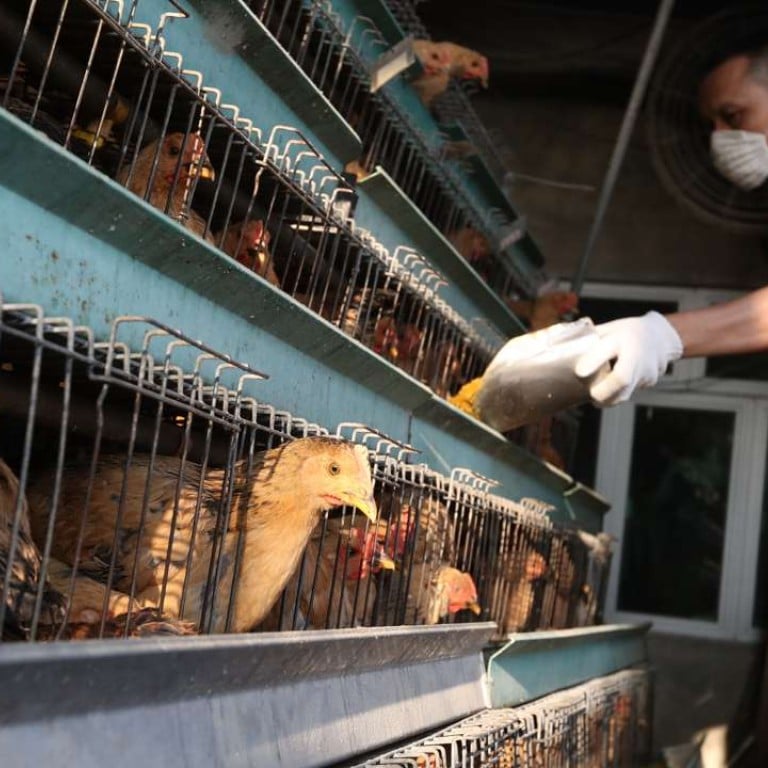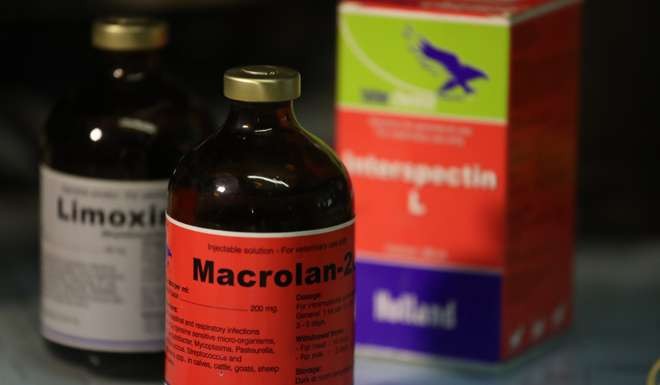
Hong Kong farmers give antibiotics to healthy chickens ... and raise supervision concerns
Admissions prompt calls for tighter control of drugs amid superbug fears
Some of Hong Kong’s poultry farmers have admitted feeding antibiotics to chickens even when they are healthy, prompting fears about resistant superbugs among livestock and raising calls for more stringent use of drugs in the trade.
The United States and the European Union have banned the use of certain antibiotics to promote growth in animals, while EU parliamentarians have called for a ban on the use of such drugs to prevent disease.
Experts suggested the government support farmers with more professional advice and expertise rather than blame them for the problem.
Watch: Antibiotics for healthy chickens
“There aren’t any vets specialising in pigs or chickens. Farmers have been treating livestock drawing from their own experience,” chicken farmer Lee Leung-kei said.
Lee, 64, is a 34-year veteran of the industry and runs a farm in San Wai Tsuen, Yuen Long. He keeps about 30,000 chickens in stacked cages with room only to poke their heads out for water or food.
Such a crowded environment, where infectious diseases can be easily spread, is common on the city’s 29 poultry farms.
Lee said he had been administering antibiotics to healthy chicks under 40 days old in order to keep them strong.
If we do nothing for prevention, the mortality rate can be over 10 per cent
“If we do nothing for prevention, the mortality rate can be over 10 per cent,” the farmer added.
Another Yuen Long farmer, Chung Ka-yau, also said he used antibiotics, especially during cold weather. “We have to use them before the chickens fall sick,” he said.
If no antibiotics were used, only about 70 per cent of his livestock would survive for sale on the market, Chung added.
Under existing regulations, farmers require a permit from the Agriculture, Fisheries and Conservation Department to obtain and possess 20 types of antibiotics.
The department also distributes a 75-page booklet explaining the complicated rules and procedures for using antibiotics.
Although the booklet specifies that antibiotics should only be used in cases of bacterial infection – as opposed to viral or other cases – both Lee and Chung said they would use the drugs on poultry as long as their chickens exhibited symptoms such as watery eyes, sneezing or diarrhoea.
“Chickens will produce a ‘hurr’ sound ... and look less energetic,” Lee said, explaining how he identified respiratory infection before administering antibiotics.
Dr Howard Wong Kai-hay, executive director of City University’s school of veterinary medicine, said farmers could make wrong decisions in treating livestock.

“They might not know precisely which drug to use, or how much and how frequently they should be prescribed,” Wong, who worked as a government vet for more than a decade, said.
“Farmers have already tried their best to use less antibiotics ... but they need someone to tell them whether the drug used is appropriate.”
While the Consumer Council has suggested phasing out drug permits and restricting the use of antibiotics, making them available only to vets, Wong said banning antibiotics in one go would be impractical.
“It must come with a set of comprehensive measures, including better biosecurity, disease diagnosis and surveillance as well as veterinary oversight. Otherwise [the farms] will just end up in an unsustainable situation,” he said.
Wong added that most of the city’s 886 vets only treated pets, which is considered to be a more profitable trade.
Professor Terence Lau Lok-ting, convenor of Polytechnic University’s food safety consortium and member of the government’s Expert Committee on Antimicrobial Resistance, agreed that educating farmers was a step in the right direction.
But he suggested that universities and the government also play a role in modernising farms to improve their techniques.
The government said it was exploring the feasibility of seeking help from tertiary institutions and veterinary bodies in diagnosing diseases and prescribing antibiotics for local livestock.

